|
2006
The winner is listed first, in CAPITAL letters.
Filmsite's Greatest Films
of 2006
|
Best Picture
|

THE DEPARTED (2006)
|

Babel (2006, Fr./US/Mex.)
|

Letters From Iwo Jima (2006)
|
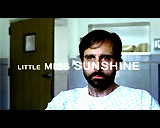
Little Miss Sunshine (2006)
|

The Queen (2006, UK/It./Fr.)
|
|
Best Animated Feature Film
|
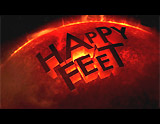
HAPPY FEET (2006)
|

Cars (2006)
|
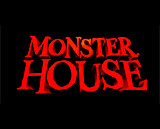
Monster House (2006)
|
|
|
Actor:
FOREST WHITAKER in "The Last King of Scotland," Leonardo
DiCaprio in "Blood Diamond," Ryan Gosling in "Half
Nelson," Peter O'Toole in "Venus," Will Smith
in "The Pursuit of Happyness"
Actress:
HELEN MIRREN in "The Queen," Penelope Cruz in "Volver," Judi
Dench in "Notes on a Scandal,"
Meryl Streep in "The Devil Wears Prada," Kate Winslet
in "Little Children"
Supporting Actor:
ALAN ARKIN in "Little Miss Sunshine," Jackie Earle
Haley in "Little Children," Djimon Honsou in "Blood
Diamond," Eddie Murphy in
"Dreamgirls," Mark Wahlberg in "The Departed"
Supporting Actress:
JENNIFER HUDSON in "Dreamgirls," Adriana Barraza in "Babel," Cate
Blanchett in "Notes on a Scandal,"
Abigail Breslin in "Little Miss Sunshine," Rinko
Kikuchi in "Babel"
Director:
MARTIN SCORSESE for "The Departed," Clint Eastwood
for "Letters From Iwo Jima," Stephen Frears for "The
Queen," Paul Greengrass for "United 93," Alejandro
González Iñárritu for "Babel"
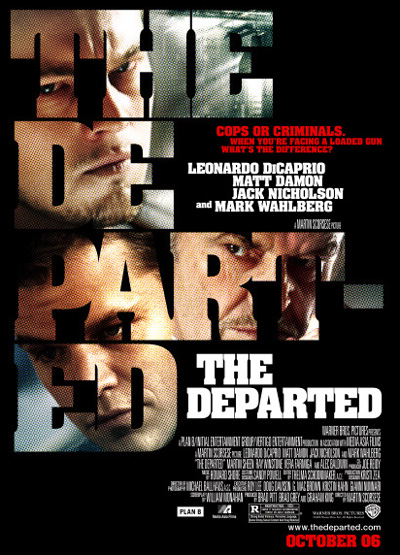 The
2006 nominees continued Hollywood's trend of nominating relatively
low-to-modestly budgeted films with ensemble casts and personal
subjects, again eschewing big budgeted Hollywood studio epics,
though in this year, three of the Best Picture-nominated films
were at least partially bankrolled by a major studio. Three
of the five films were released by specialty divisions, while
director Clint Eastwood's Letters From Iwo Jima was
able to be made by a studio, using his reputation to get financing
for its narrowly-appealing content. The
2006 nominees continued Hollywood's trend of nominating relatively
low-to-modestly budgeted films with ensemble casts and personal
subjects, again eschewing big budgeted Hollywood studio epics,
though in this year, three of the Best Picture-nominated films
were at least partially bankrolled by a major studio. Three
of the five films were released by specialty divisions, while
director Clint Eastwood's Letters From Iwo Jima was
able to be made by a studio, using his reputation to get financing
for its narrowly-appealing content.
It was one of the most diverse and international
rosters of nominees and winners in recent Academy history.
The five films that were nominated for Best Picture had a total
of only 26 nominations -- the fewest since 1932/1933 (when
10 films were nominated for the top prize but there were fewer
awards categories). No single film received nominations in
more than six categories. And the Oscar wins were spread out
over numerous films - many received either one or two awards.
As with last year, there was a perceived backlash
against flashy, "popcorn" Best Picture nominees and
winners. Mega-budget, special effects-heavy box-office blockbusters
that received minimal nominations included:
- Gore Verbinski's Pirates
of the Caribbean: Dead Man's Chest (4 technical
nominations, with a sole Oscar win for Best Visual Effects),
one of the fastest grossing films in history, reaching
$100M and $200M box office dollars in record time, and
grossing over $1B worldwide, as the second part of a
planned trilogy
- Brett Ratner's X-Men:
The Last Stand (no nominations), the third film
in the series, grossing box-office of about $460 worldwide
- Ron Howard's The Da Vinci Code (no
nominations), which grossed over $750M worldwide despite
savage reviews
- Superman
Returns (one nomination for Best Visual Effects),
the fifth in the series, directed by former X-Men director
Bryan Singer and a total worldwide box-office of almost
$400M
- Martin Campbell's Casino
Royale (no nominations), the exciting 007 "reboot" starring
Daniel Craig as the new James Bond, which grossed about
$550M worldwide
- J.J. Abrams' Mission
Impossible III (no nominations), starring and
produced by Tom Cruise, which earned nearly $400M worldwide
despite negative reviews and bad word-of-mouth; Cruise
would later be fired by Paramount due to diminishing
box office returns and personal instability
- Michael Mann's Miami Vice (no nominations),
a resounding flop
- Wolfgang Petersen's Poseidon (one nomination
for Best Visual Effects), another major dud
The Best Picture category was an interesting
mix of ethnically and linguistically diverse films -- in two
of the films, English was a second language. [Note: The most-nominated
film with 8 nominations, Dreamgirls, was not a Best
Picture nominee. It was the first time ever in Academy history
that the film with the most nominations failed to earn a Best
Picture slot.] The Best Picture winner was:
- The Departed (Warner Bros.) (with
5 nominations and four wins including Best Director, Best
Screenplay Adaptation, and Best Film Editing), a gritty
tense cop suspense-thriller and crime drama, and a loosely-based
remake of the action film Infernal Affairs (2002, HK)
(aka Mou Gaan Dou, or Wu
Jian Dao) by director Martin Scorsese - it was the
first - and only - remake of a foreign film to win Best
Picture. It told about a pair of Irish Bostonians, one
an undercover cop (Leonardo DiCaprio) spying on the local
organized crime family, the other a police plant (Matt
Damon) hired by the same family. Its tagline was: "COPS
or CRIMINALS. When you're facing a loaded gun, what's the
difference?" This was Scorsese's second film remake, the
first being the twice Oscar-nominated Cape
Fear (1991),
and the highest budgeted of the five Best Picture nominees
at $90M.
The other four Best Picture nominees were:
- Babel (independent feature distributed
in the USA by Paramount) (with 7 nominations and only one
win, Best Original Score - for Gustavo Santaolalla, who received
the same prize a year ago for Brokeback Mountain (2005)),
director Alejandro Gonzalez Inarritu's sprawling, multi-threaded
ensemble story similar in structure to Traffic (2000), Crash
(2005) and Syriana (2005), centered around cascading
tragedies stemming from the accidental shooting of an American
wife (Cate Blanchett) by a Moroccan sheepherder; the film
was a major box office flop and was received poorly by critics
in general, but aggressive campaigning, similar to the previous
year's Crash, earned the film numerous awards including
the Best Dramatic Feature Golden Globe Award
- The Queen (co-produced by Pathe Films
and Miramax) (with 6 nominations and only one win, Best Actress),
director Stephen Frears' riveting "inside story"
monarchy chronicle told about the week the Royal Family became
reviled by the British public due to their silence following
the death of "the People's Princess" Lady Diana in
1997, and how newly-elected Prime Minister Tony Blair (Michael
Sheen) cajoled Queen Elizabeth II (Helen Mirren) to acquiesce
to the public's demands
- Letters From Iwo Jima (DreamWorks/Warner
Bros.) (with 4 nominations and only one win, Best Sound Editing),
director Clint Eastwood's emotional American-produced foreign
language film about the Japanese perspective during the bloody
Battle of Iwo Jima in World War II [Note: If Letters From
Iwo Jima had been named Best Picture, it would be the first foreign-language
film to win in that category]
- Little Miss Sunshine (independent feature
globally distributed by 20th Century Fox) (with 4 nominations
and only two wins, Best Supporting Actor and Best Original
Screenplay), a quirky light comedy/road movie about the adventures
of an oddball, dysfunctional New Mexico family driving cross-country
in a broken-down Volkswagen van for their 7 year-old daughter
Olive's Little Miss Sunshine beauty pageant in Redondo Beach,
California [Trivia Note: If underdog Little Miss Sunshine had
won Best Picture, it would have been only the fourth film
- after Driving Miss Daisy (1989), Grand
Hotel (1932) and Wings (1927/28) - in Oscar
history to take the top prize without having its director
nominated]
Time Warner Inc.'s studios (including New Line
and Picturehouse), due in part to Pan's Labyrinth (6
nominations and 3 wins) and The Departed (5 nominations
and 4 wins), received the most Oscar nominations with 31 (spread
out over 11 films), and came away with the top two films with
the most wins. Viacom Inc.'s Paramount units (including DreamWorks
SKG) had 23 (for 5 nominated films) and Walt Disney Co. had
17. News Corp's Fox studios received 10 nominations, while
General Electric Co's Universal Pictures had five for Children
of Men and United 93.
There was one Best Picture nominee whose directors
were not nominated for Best Director: husband and wife co-directors
Jonathan Dayton and Valerie Faris for Little Miss Sunshine.
Their replacement on the Best Director nominees roster was
Paul Greengrass for United 93. If Jonathan Dayton and
Valerie Faris had been nominated as Best Director for Little
Miss Sunshine, it would have been only the third time
in Oscar history that co-directors would have been nominated
on a single film. [Other pairs included Oscar-winning Jerome
Robbins and Robert E. Wise for West
Side Story (1961) and the Oscar-nominated duo of Warren
Beatty and Buck Henry for Heaven Can Wait (1978).]
Once again, the two favored Best Director nominees
(Martin Scorsese and Clint Eastwood) from 2004 were rematched
again this year in the category. The winner was sentimental
favorite 64 year-old Martin Scorsese (his sixth Best
Director nomination and his first Oscar win), for the
bloody crime film The Departed. He had never won an
Oscar despite receiving five previous directorial nominations
for Raging Bull (1980), The
Last Temptation of Christ (1988), GoodFellas
(1990), Gangs of New York (2002), and The
Aviator (2004), as well as two screenplay nominations for GoodFellas and The
Age of Innocence (1993).
The remaining Best Director nominees included:
- 76 year-old Clint Eastwood (his fourth Best
Director nomination), for the WWII war film Letters From
Iwo Jima - he has already won two Best Director Oscars
for: Unforgiven (1992) and Million
Dollar Baby (2004). [Note: Eastwood went head-to-head
in 2004 in the same category with the winning Million
Dollar Baby against Scorsese's The Aviator]
- Paul Greengrass (his first nomination)
for United 93 (2 nominations including Best Film Editing,
but not Best Picture!), the moving account of the real-life
events about the doomed United Flight 93 jet airliner, which
was hijacked by terrorists during the September 11th, 2001
attacks on New York City and Washington DC, who were overcome
by passengers who self-sacrificially crashed the plane rather
than allowing it to be used as a weapon
- Mexican-born Alejandro Gonzalez Inarritu (his first nomination)
for the four story-lines film Babel
- Stephen Frears (his second nomination)
for The Queen, a long time Oscar snub (he received
only one directorial Oscar nomination for The Grifters
(1990))
Three of the year's most-nominated films were
the work of Mexican directors. The Mexican directing troika
of Alejandro Gonzalez Inarritu, Guillermo del Toro and Alfonso
Cuaron took a combined 16 nominations for their films Babel (with
seven nominations), Pan's Labyrinth (with six nominations
including Best Foreign-Language Film) and Children of Men (with
three nominations), respectively. Alejandro Gonzalez Inarritu
was the first Mexican director nominated for the top
prize.
Animated films were returning to the box office
dominance they enjoyed in the 1950's under Disney, with four
of the top 10 grossing films of 2006 being animated films: Cars (#2
in box office), Ice Age: The Meldown (#6 B.O.) (no nominations), Happy
Feet (#7 B.O.), and Over the Hedge (#10 B.O.) (no
nominations). Weeks before the Academy Award nominations announcement,
Luc Besson's strange CGI animated film Arthur and the Invisibles (featuring
an eclectic English-language all-star voice cast of Madonna,
Robert De Niro, Mia Farrow, Harvey Keitel, Chazz Palminteri,
Emilio Estevez, and rapper Snoop Dogg) was declared ineligible
(less than 75% of the film was animated), reducing the number
of pool of eligible nominees from 16 to 15, which, in compliance
with Academy rules, reduced the number of eligible nominees
to 3. This effectively removed the chance of having 5 nominees
in the Best Animated Feature Film category for the first (and
only) time since 2002. All three nominees were CGI-animated
films, reversing the previous year's inclusion of no CGI
films at all.
Among the three remaining strong contenders,
the Animated Feature Film Oscar was won by Warner Bros. and
George Miller's rollicking and poignant penguin song-and-dance
musical Happy Feet (its sole nomination). Miller earned
his first Oscar win after three previous Oscar nominations:
for Lorenzo's Oil (1992) (Best Original Screenplay)
and twice for Babe (1995) (for Best Picture
and Best Screenplay Adaptation). The other two nominees were:
- Disney/Pixar's mediocre Cars (2 nominations
including Best Song), about anthropomorphic cars in a rural
Southwestern USA desert town (the plot was similar to Michael
J. Fox's comedy Doc Hollywood (1991))
- Sony Pictures and Steven Spielberg's Amblin
Entertainment's witty suburban satire Monster House (its
sole nomination)
With five African-Americans, two from Spanish-speaking
countries and an Asian, it was the most ethnically-diverse
lineup ever among the 20 acting nominees. (Also add the three
British, one Canadian, and one Aussie performer to make it
even more diverse!) Ten of the 20 acting nominees were first-timers.
The other 10 nominees shared a total of 49 nominations and
three (Streep, Dench and Blanchett) were previous Oscar winners.
Of the ten Best Actor and Best Actress nominees, only Helen
Mirren was in a Best Picture nominee [Trivia Note: the last
time this happened was 75 years earlier in 1931/32, when Wallace
Beery was nominated for The Champ (1931/32)]! This year
marked only the third time in Oscar history that African-Americans
won two of the four acting prizes (it also occurred in 2004
and 2001).
In the Best Actor category, four of the five
nominees represented the sole nomination for that picture,
and all of them had never won an Oscar. Two were long-time Oscar
snubs. It was the third time in Oscar history that
two black performers were among the five Best Actor nominees
(this also occurred in 2001 and 2004). The winner was 45 year-old
Forest Whitaker (with his first nomination and first win)
for his hammy portrayal of brutal, infamous Ugandan dictator
Idi Amin, who was responsible for the genocide of over 500,000
Ugandans in The Last King of Scotland (its sole nomination).
He was the fourth African-American actor to win the
Best Actor Oscar.
The remaining candidates for Best Actor included:
- 74 year-old Peter O'Toole (with his eighth Best
Actor career nomination) for the role of Maurice, a dying,
impotent, yet lecherous and lustful has-been actor who has
a platonic March-December romance with his best friend's
teenaged grand-niece (Jodie Whittaker) in Venus (its
sole nomination). [O'Toole has already received seven unsuccessful
Best Actor nominations for Lawrence
of Arabia (1962), Becket (1964), The Lion
in Winter (1968), Goodbye, Mr. Chips (1969), The
Ruling Class (1972), The Stunt Man (1980), and My
Favorite Year (1982), and received an Honorary Lifetime
Achievement Oscar in 2003. O'Toole's loss put him in the
record books as the actor with the most nominations
without winning. O'Toole was tied with Richard Burton with
seven losing nominations before his Venus nomination.
If O'Toole had won the Oscar, he would have joined Henry
Fonda and Paul Newman as actors who won their first competitive
Oscars after receiving Honorary Awards. He nearly
turned down the honorary Oscar three years ago because he
hoped to earn one outright.]
- 32 year-old Leonardo DiCaprio (with his third nomination,
previously earning a lead nomination for The Aviator (2004),
and supporting nomination for What's Eating Gilbert Grape?
(1993)) as white South African diamond smuggler/mercenary
Danny Archer in Blood Diamond (5 nominations)
- 26 year-old Canadian Ryan Gosling (his first nomination)
as crack-addicted inner city (NYC) junior high school teacher
Dan Dunne in the independent film Half Nelson (its
sole nomination)
- 38 year-old Will Smith (his second nomination,
previously a lead nomination for Ali (2001)) as real-life
single father and rags-to-riches success story Chris Gardner,
an unpaid Dean Witter intern and homeless father who supported
himself and 8 year-old son Christopher (Jaden Smith) while
living off the streets before rising to corporate prominence
in The Pursuit of Happyness (its sole nomination)
In the Best Actress category, three of the five
nominees including the favorites - were over 50. The prohibitive
favorite and winner for Best Actress was 61 year-old Helen
Mirren's (with her third career nomination and first win)
astonishing portrayal of current reigning British monarch Queen
Elizabeth II in the sleeper hit The Queen, whose popularity
hit a nadir during the week following the tragic 1997 death
of Lady Diana, former Princess of Wales after a divorce from
Prince Charles. This was her first lead nomination after
two unsuccessful supporting nominations for The Madness
of King George (1994) (as another real-life queen,
Queen Charlotte) and Gosford Park (2001). [Ironically,
Mirren won the Emmy in the same year for her portrayal of Queen
Elizabeth I in the British television miniseries Elizabeth
I (2005)!]
The four other Best Actress nominees were:
- 32 year-old Spanish actress Penelope Cruz
(her first nomination) as tough, working-class single
mother Raimunda, whose dead mother Irene (Carmen Maura) returned
to fix unresolved family issues and grappled with ghosts
in the tragi-dramedy Volver (its sole nomination),
her third role for writer/director Almodovar - she became
the first Spanish woman to be nominated for a best actress
Academy Award for a non-English speaking role
- 72 year-old Judi Dench (her sixth nomination,
all earned after the age of 60, following three previous
lead nominations for Mrs. Brown (1997), Iris (2001),
and Mrs. Henderson Presents (2005), and two supporting
nominations for Shakespeare in Love (1998), for which
she won her sole Oscar, and Chocolat (2000)),
as lonely, disturbed, treacherous and blackmailing spinster-lesbian
Islington district school teacher Barbara Covett in Notes
on a Scandal (4 nominations, including Best Screenplay
Adaptation and Best Score) [Trivia Note: Dench received an
Oscar nomination for five of the last eight years!]
- 57 year-old Meryl Streep (her incredible fourteenth nomination,
her first since Adaptation (2002), with two Oscar
wins in 1979 and 1982) as ruthless and tyrannical style-magazine
editor Miranda Priestly (a thinly veiled caricature of real-life Vogue editor-in-chief
Anna Wintour) in The Devil Wears Prada (2 nominations
including Best Costume Design) [Note: Two-time Oscar winner
Streep's 14th nomination padded her record as the most-nominated
actor ever, ahead of both Katharine Hepburn and Jack Nicholson
with 12 nominations]
- 31 year-old Kate Winslet (her fifth nomination,
including her two lead nominations for Titanic (1997) and Eternal
Sunshine of the Spotless Mind (2004), and two supporting
nominations for Sense & Sensibility (1995) and Iris
(2001)) as bored suburban wife and mother Sarah Pierce
who has an adulterous affair with her neighbor Brad Adamson
(Patrick Wilson) in Little Children (3 nominations,
including Best Screenplay Adaptation)
[Trivia Note: At 31 years of age, Kate Winslet became the youngest performer
to receive five acting nominations. The previous record holder
was Olivia de Havilland, who was 33 when she received her fifth
nomination for The Heiress (1949).
Earlier, 22 year-old Winslet became the youngest actress to
have two nominations, and in 2004, she became the only actress
to have scored four nominations before the age of 30.]
None of the performers in the tightly-contested
Best Supporting Actor race had ever won an Oscar; they
included a longtime Oscar snub, and another earning a nomination
after several decades of work since his last recognition. The
race was won by:
- 72 year-old Alan Arkin (his third nomination
- and his first after 38 years, although not a record - he
had been nominated for Best Actor twice, for The Russians
are Coming! The Russians are Coming! (1966) and The
Heart is a Lonely Hunter (1968)), as foul-mouthed, porno-reading,
heroin-addicted and crotchety Grandpa in Little Miss Sunshine
The four other nominees were:
- 45 year-old former Bad News Bears child
star Jackie Earle Haley (his first nomination) as
convicted, and creepy yet sympathetic pedophile Ronald James
McGorvey whose parole affects an entire suburban community
in Little Children
- 43 year-old Beninese-American Djimon Hounsou
(his second nomination, previously nominated in a
supporting role for In America (2003)) as Sierra Leone
fisherman-turned-diamond miner Solomon Vandy, who fights
for his stolen son and becomes embroiled in a jewel theft
to buy his family's freedom in Blood Diamond
- 45 year-old comedian Eddie Murphy as raucous,
flamboyant, womanizing, drug-addicted "rock-and-soul" singer
James (Jimmy) 'Thunder' Early in Dreamgirls [This
was long-time Oscar snub Murphy's first nomination,
having been overlooked by the Academy for such worthy roles
as 48 HRs (1982), Trading Places (1983), Beverly
Hills Cop (1984), Coming to America (1988), and The
Nutty Professor (1996).]
- 35 year-old Mark Wahlberg (his first nomination)
as self-righteous, wise-cracking Boston cop Sgt. Dignam in The
Departed, the only acting nominee from the film
The Best Supporting Actress category was won
by the heavily-favored 25 year-old American Idol star
Jennifer Hudson in her powerful film debut as outspoken and
brassy cast-away Dreams lead singer and single mother
Effie Melody White (based on real-life singer Florence Ballard),
in Dreamgirls. She became the third African-American
actress to win a Best Supporting Actress Oscar. [Trivia Note:
Three other singers received their first nomination for debut
roles: Barbra Streisand as Best Actress (win) for Funny
Girl (1968), Diana Ross as Best Actress (nom) for Lady
Sings the Blues (1972), and Bette Midler as Best Actress
(nom) for The Rose (1979). All three actresses portrayed
real-life singers as well - Fanny Brice, Billie Holiday, and
Mary Rose "The Rose" Foster, based on Janis Joplin.]
The other Best Supporting Actress nominees included
two actresses from Babel, each earning a first Oscar
career nomination:
- Mexican-born Adriana Barraza as careless Mexican
housekeeper Amelie in Babel - she is forced to bring
her American employers' children to Mexico in order to attend
her son's wedding, leading to a cascade of unfortunate tragedies
- 26 year-old Japanese actress Rinko Kikuchi
as isolated, depressed and troubled 16 year-old deaf-mute
Tokyo teenaged girl Chieko in Babel [Trivia note:
If she had won, Kikuchi would have become the first Japanese
performer in about 50 years to win an Oscar in an acting
category since Miyoshi Umeki won the Best Supporting Actress
award for her role in Sayonara (1957).]
- 37 year-old Aussie Cate Blanchett (her third
nomination, having won an Oscar for her supporting role in The
Aviator (2004), and nominated for her lead role in Elizabeth
(1998)), in her lead role as art teacher and morally-challenged,
bored wife and mother Bathsheba
"Sheba" Hart, whose affair with a 15 year-old student
leads to her blackmailing by an older, treacherous lesbian-spinster
teacher (Dench) in Notes on a Scandal
- 10 year-old actress Abigail Breslin (her first
nomination) as 7 year-old beauty pageant-addicted Olive in Little
Miss Sunshine; at 10 years, 279 days, Breslin was the youngest actress
to be nominated for Best Supporting Actress since Quinn Cummings
(at 10 years and 192 days) was nominated for The Goodbye
Girl (1977)
The Best Documentary Feature Film category was
one of the most hotly contested in Academy Awards history.
The nominees included a collection of controversial, politically-charged
films and two films which took a hard look at organized religion.
The winner experienced a surprising clean-sweep:
- the heavily-favored An Inconvenient Truth (with
2 nominations and 2 wins, also Best Original Song) - a harrowing
ecological disaster documentary film about the ravages of
global warming lectured by former US Vice President Al Gore
The other four nominees were:
- two Iraq-based documentaries critical of
current US President George W. Bush administration's policies
in the Middle East: (1) Iraq in Fragments and (2) My
Country, My Country
- Deliver Us From Evil, a searing, candid
look at child molestation among Catholic priests, focusing
on one of the convicted Catholic priests - pedophile ex-priest
Oliver O'Grady, who served parishes in central California
and was eventually convicted in 1993, served seven years
in prison, and was then deported
- Jesus Camp, an illuminating documentary
about the charismatic Pentecostal movement, in particular,
Pastor Becky Fischer's Evangelical summer camp ("Kids
on Fire") in Devil's Lake, North Dakota that teaches
children to "take America back for Christ"
The Best Foreign Language Film category included
the following five nominees (the winner is listed first):
- The Lives of Others (Germany) (aka Das
Leben der Anderen), a powerful emotional character
study set five years before the collapse of the Berlin
Wall, with an incisive look at the surveillance network
of the terrifying secret police (Stasi) in East Berlin,
following the story of one of its disillusioned secret
police survelliance agents named Hauptmann Gerd Wiesler
(Ulrich Mühe) who was ordered to spy on a young couple:
loyal Socialist playwright Georg Dreyman (Sebastian Koch)
and his devoted actress/lover Christa-Maria Sieland (Martina
Gedeck) - Note: This was the third Best Foreign Language
Film Oscar for a German film - the other two were West
Germany's The Tin Drum (1979) and Germany's Nowhere
in Africa (2002)
- After The Wedding (Denmark) (aka Efter
Brylluppet), an emotional drama about shattered revelations
regarding family relationships
- Days of Glory (Algeria) (aka Indigenes),
a WWII war film about Algerian soldiers in North Africa who
enlist in the French army to fight against the Nazi oppression
in Morocco
- the heavily-favored Pan's Labyrinth (Mexico)
(aka El Laberinto del Fauno), a magical and engrossing
film set in 1944 rural Spain during Franco's regime, about
young Ofelia's (Ivana Baquero) imaginary escapist world
to seek refuge
- Water (2005, Canada), director Deepa
Mehta's compelling socio-political period drama about the
unjust treatment of Hindu widows (some very young girls)
in the late 1930s, with great un-nominated performances by
female cast members (Seema Biswas, Lisa Ray, and Sarala)
Three of Dreamgirls' eight nominations
were for Best Original Song - this tied the record that was
set by Beauty and the Beast (1991) (with one
win) and The Lion King (1994) (with one win) - however,
its overwhelming odds to win in the category were upset by
the documentary An Inconvenient Truth's Best Original
Song Oscar win for "I Need to Wake Up".
The Honorary Lifetime Achievement Oscar went
to 78 year-old famed Italian composer Ennio Morricone, best
known for scoring Sergio Leone's films - in particular the
spaghetti western "Man With No Name" trilogy including: A
Fistful of Dollars (1964), For a Few Dollars More (1965),
and The Good, the Bad, and the Ugly (1966). Other Leone
films he scored included Once Upon a Time in the West (1968), A
Fistful of Dynamite (1971), and Once Upon a Time in
America (1984). He had five unsuccessful Academy Award
nominations for Days of Heaven (1978), The
Mission (1986), The Untouchables (1987), Bugsy
(1991) and Malena (2000).
Oscar Snubs and Omissions:
Some of the most critically acclaimed films of
the year and their directors went unhonored for Best Picture.
The most shocking Best Picture omission was for Dreamgirls,
which earned 8 Oscar nominations, considering its previous
win as the Best Musical or Comedy for the Golden Globes awards.
Un-nominated director Bill Condon's film was a lavish and vibrant
screen adaptation of Michael Bennett's popular Broadway musical
about a trio of soul singers The Dreams, in a thinly
veiled roman a clef of the real Motown singing group
The Supremes.
[Note: Dreamgirls received eight Oscar
nominations, the most of any nominee, without a Best
Picture nomination, and came away with only two wins: Best
Supporting Actress, and Best Sound Mixing. Only They Shoot
Horses, Don't They? (1969) had more Oscar nominations (9) without a
Best Picture nomination, but it didn't have the most Oscar
nominations in its year of competition. In the same year, Anne
of a Thousand Days (1969) had more nominations (10), but
it was nominated for Best Picture. Therefore, Dreamgirls with
8 nominations set a major record - it was the first-time ever
in Academy history that the film with the most nominations
failed to earn a Best Picture slot.] Pan's Labyrinth earned
6 nominations and 3 Oscars (Best Art Direction/Set Decoration,
Best Cinematography, Best Makeup) and Blood Diamond earned
5 nominations (with no wins) - both without a Best Picture
nomination.
Other major Best Director/Best Picture omissions
included:
- Guillermo del Toro for Pan's Labyrinth (with
six nominations including Best Foreign Language Film and
Best Original Screenplay, but not Best Visual Effects!),
a wondrously imaginative World War II era fantasy film set
in Spain
- Richard Eyre for Notes on a Scandal (with
four nominations including Best Actress and Best Supporting
Actress, and no wins), a sexual thriller based in a London-area
working-class high school some dubbed "Fatal Attraction for
the art-house crowd"
- Todd Field for Little Children (with
three nominations and no wins, including Best Screenplay
Adaptation and Best Actress), a drama about American suburbia
- Mel Gibson for Apocalypto (with three
technical nominations and no wins), an ultra-violent adventure
film set in the last days of the Mayan Empire
- the blockbuster action film Casino
Royale (with no nominations) with Daniel Craig's
scintillating performance as the newly-reinvented 007
James Bond
- director Alfonso Cuaron's bleak, futuristic
and dystopic drama Children of Men (with three nominations
including Best Cinematography, Best Editing and Best Adapted
Screenplay - and no wins) was set in the year 2027
- Clint Eastwood for his other WWII film, Flag
of Our Fathers (with two technical nominations and
no wins) about the bloody Battle of Iwo Jima and three
of the soldiers who hoisted the flag in the famous photograph
- the first part of Eastwood's "Iwo Jima Diptych" [Trivia: Flags
of Our Fathers and Letters From Iwo Jima competed
against each other in one category: Best Sound Editing,
which the latter film won]
- Robert De Niro's second career directorial
stint for The Good Shepherd (one nomination for Best
Art Direction/Set Decoration), a methodical and somber, intriguing,
almost three-hour character-based historical drama that examined
the formation of the CIA (based in part on the real-life
experiences of the organization's enigmatic founder James
J. Angleton) through a look at the decades-long involvement
of top CIA agent Edward Bell Wilson (Matt Damon)
- Roger Michell for Venus (one nomination
for Best Actor), a tearjerker/character study about a 72
year-old dying, has-been actor who fell in love with a 19
year-old aspiring model
- David Lynch for Inland Empire (with
no nominations), a mindbender about an actress for whom reality
and fiction begin to blend while working on a new film
- James McTeigue for V for Vendetta (with
no nominations), a comic book fantasy about a masked vigilante's
quest to topple a fascist British government
Other worthy Best Picture nominees included Borat:
Cultural Learnings of America for Make Benefit Glorious Nation
of Kazakhstan, Casino Royale, Overlord, Half
Nelson, The Proposition, Infamous, Stranger
Than Fiction, and The History Boys.
The biggest un-nominated acting roles included:
- Sacha Baron Cohen's lead performance in the
mockumentary Borat: Cultural Learnings of America for
Make Benefit Glorious Nation of Kazakhstan (its sole
nomination for Best Original Screenplay) as Kazakhstani television
reporter Borat Sagdiyev
- Gretchen Mol's uncanny portrayal of real-life
S&M pinup queen Bettie Page, and Lili Taylor's supporting
role as intelligent, sharp-witted photographer Paula Klaw
in The Notorious Bettie Page (no nominations)
- Ulrich Mühe as sympathetic "guardian
angel" secret police Stasi survelliance agent Hauptmann
Gerd Wiesler (aka HGW XX/7) in director Florian Henckel von
Donnersmarck's debut feature The Lives of Others,
the winner of the Oscar for Best Foreign Language film
- Maggie Gyllenhaal as self-absorbed, recovering
junkie/ex-con Sherry Swanson eager to establish a relationship
with her young daughter in Sherrybaby
- Naomi Watts as restless, upper-class British
society girl Kitty, opposite producer/star Edward Norton
as middle-class British bacteriologist Dr. Walter Fane --
a mis-matched couple in disease-plagued, mid-1920s China
in The Painted Veil, a love story based on a novel
by W. Somerset Maugham
- Jack Nicholson for his supporting role as
the quiet, intense villain Frank Costello, Leonardo DiCaprio
as deep undercover cop Billy Costigan who infiltrated an
Irish crime family, and Matt Damon's lead role as Mob police
plant Colin Sullivan, in Martin Scorsese's The Departed
- Ken Watanabe's brilliant performance in a
lead role as General Tadamichi Kuribayashi, and Japanese
pop-star Kazunari Ninomiya as common soldier Saigo, in Letters
From Iwo Jima
- Michael Sheen's portrayal of shrewd and charismatic
British Prime Minister Tony Blair in The Queen
- Jodie Whittaker as Jessie - the 19 year-old
fresh-faced object of lust for Peter O'Toole's charming Maurice,
Leslie Phillips as Maurice's crotchety best friend and Jessie's
grand-uncle Ian, and Vanessa Redgrave as Maurice's bemused,
observant estranged wife Valerie, in Venus
- Toby Jones and Sandra Bullock for their portrayals
of Truman Capote and Nelle Harper Lee in Infamous (no
nominations), the roles for which Philip Seymour Hoffman
and Catherine Keener both earned nominations the previous
year for Capote (2005), with Hoffman victorious
- Robert Downey, Jr.'s paranoid hipster Barris
in the rotoscoped animated film A Scanner Darkly (no
nominations)
- Catherine O'Hara as Oscar-obsessed, desperate
actress Marilyn Hack in Christopher Guest's mockumentary
comedy For Your Consideration (no nominations)
- Annette Bening as Augusten Burroughs' psychotic
mother Deirdre in Running with Scissors
- Jamie Foxx as conniving, Machiavellian manager
Curtis Taylor, Jr. (based on real-life music producer Berry
Gordy) of the Dreams, Beyonce Knowles as backup singer-turned-disco
diva Deena Jones (based on real-life disco queen Diana Ross),
and Anika Noni Rose as mousy, squeaky-voiced backup singer
Lorrell (based on real-life singer Mary Wilson) in Dreamgirls
- Richard Griffith's lead role as older, tenured
teacher Hector in director Nicholas Hytner's adaptation of
Alan Bennett's popular play The History Boys (no nominations)
- Aaron Eckhart, snubbed years before for his
role in In the Company of Men (1997), for his role
as slimy Big Tobacco lobbyist Nick Naylor in debut director/scriptwriter
Jason Reitman's Thank You For Smoking (no nominations)
- Renee Zellweger as real-life off-beat modernist
and The Tale of Peter Rabbit children's book English
author Beatrix Potter in Miss Potter (no nominations)
- Kevin Spacey's campy role as villain Lex Luthor
in Superman Returns
- Sylvester Stallone for his sixth portrayal
of lower-class now-sexagenarian boxer Rocky Balboa in Rocky
Balboa (no nominations)
- Bill Nighy for two roles: (1) as the supernatural,
octopus-headed Davy Jones in Pirates
of the Caribbean: Dead Man's Chest, and (2) as older
husband Richard Hart whose bohemian wife/art teacher Sheba
Hart (Cate Blanchett) was engaged in an affair with a sexually-aggressive
teenaged 'male Lolita' student (Andrew Simpson) in Notes
on a Scandal
- Keira Knightley's reprised role as a more
sexually mature and aggressive Elizabeth Swann in Pirates
of the Caribbean: Dead Man's Chest
Other notable acting snubs included:
- Laura Dern as actress Nikki Grace whose life
seemed to confusingly merge and intersect with her character
in her starring role (as Susan Blue) in a new movie, in David
Lynch's Hollywood satire Inland Empire
- Emily Blunt and Stanley Tucci's supporting
roles in The Devil Wears Prada
- Will Farrell as hyper-neurotic IRS auditor
Harold Crick - the lead fictional character of blocked author
Kay Eiffel's (Emma Thompson) book in Stranger Than Fiction (no
nominations) - the film was also overlooked for Zach Helm's
clever original screenplay
- 12 year-old Ivana Baquero as Ofelia, a girl
who escaped the aftermath of the Spanish Civil War in northern
Spain by traveling into her own imaginary world in Pan's
Labyrinth
- Brad Pitt's lead as Richard - the husband
of a random-shooting victim, and Gael Garcia Bernal's supporting
role as Santiago in Babel
- Ben Affleck as Superman star George
Reeves in Hollywoodland
- Shareeka Epps (in her feature debut) as inner-city
8th-grader Drey in Half Nelson
- Toni Collette as the harried mother Sheryl
and Steve Carell as suicidal uncle Frank in Little Miss
Sunshine
- Juliette Binoche as poor Bosnian seamstress
refugee Amira, mother of a 15 year-old truant/thief in Anthony
Minghella's Breaking and Entering
- Adam Beach as alcoholic Marine serviceman
Ira Hayes in Flags of Our Fathers
There were some major omissions among the Best
Song nominations - - including Chris Cornell's hard-driven
song "You Know My Name" from Casino Royale,
and songs from two animated films: Prince's "Song of the
Heart" in Happy Feet, and any of Ben Folds' original,
insightful songs, including "Family of Me" and "Still" in Over
the Hedge.
Documentary Film omissions included:
- writer Dave Chappelle's and director Michel
Gondry's Dave Chappelle's Block Party (2005) (released
in March, 2006), a chronicling of a block party held in comedian
Chappelle's Bedford-Stuyvesant hometown neighborhood in Brooklyn
in September, 2004 - a warm, exuberant celebration of community
for friends and fans during a musical concert
- avant-garde film pioneer Pat O'Neill's experimental The
Decay of Fiction (2002), a documentary about the famed
Ambassador Hotel in Los Angeles (where Robert Kennedy was
assassinated, the Academy Awards have been held, and numerous
films have been made), using double exposure to overlay
color shots within the hotel with B/W footage of actors
enacting vignettes from 1940s films
The biggest Foreign Language Film omission was
the domestic crisis drama Volver (Sp.) - it had been
considered a possible front-runner for the Foreign Language
Film prize. It was also not nominated for Best Director (Pedro
Almodovar).
Other notable Foreign Language Film omissions included:
- director/writer Michel Gondry's second film
(after his Oscar-winning Eternal Sunshine of the Spotless
Mind), the romantic fantasy The Science of Sleep (Sp.)
(aka La Science des Rêves) with a combination of
animation and live action - it delved into dreams, consciousness
and imagination, and starred Gael García Bernal as
an introverted eccentric artist/inventor
- director/writer Yüksel Aksu's comedy Dondurmam
Gaymak (Turkey) (aka Ice Cream, I Scream), about an
obnoxious small-town ice cream vendor Ali (Turan Ozdemir)
[Note: It would have been better if Turkey had instead
selected writer/director Nuri Bilge Ceylan's domestic melodrama Climates
(aka Iklimler), which told about the strained marriage
between a self-absorbed university professor (director
Ceylan) and his younger, infantile wife Bahar (real-life
wife Ebru Ceylan)]
- gay director João Pedro Rodrigues'
overwrought, tearjerking romantic tragedy Odete (2005,
Port.) (aka Two Drifters)
- Carlos Reygadas' sexually explicit drama Battle
in Heaven (2005, Mex.) (aka Batalla en El Cielo) -
although it was ineligible for nomination, due to the Academy's
rule of one-film-per-country (Pan's Labyrinth took
the country's one spot)
The biggest Animated Feature Film snub of the
year was DreamWorks/PDI's CGI-animated Over the Hedge,
a clever adaptation of the newspaper comic strip about con-artist
raccoon R. J. (voice of Bruce Willis) who tricks a group of
forest animals led by cautious turtle Verne (voice of Garry
Shandling) into stealing food from a suburb.
Other notable Animated Feature Film omissions
included:
- DreamWorks/Aardman Studio's first CGI-animated
film Flushed Away, about the adventures of stuffy,
upper-class pet rat Roddy (voice of Hugh Jackman) trapped
in the London sewers
- 20th Century Fox's sequel Ice Age: The
Meltdown, a downbeat parable for the modern danger
of global warming
- Richard Linklater's adaptation of Philip K.
Dick's short story titled A Scanner Darkly, using
the same rotoscoped computer animation used for Linklater's
own Waking Life (2001)
|
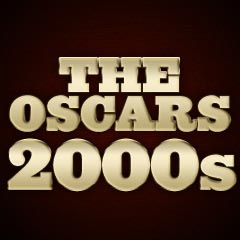
![]()